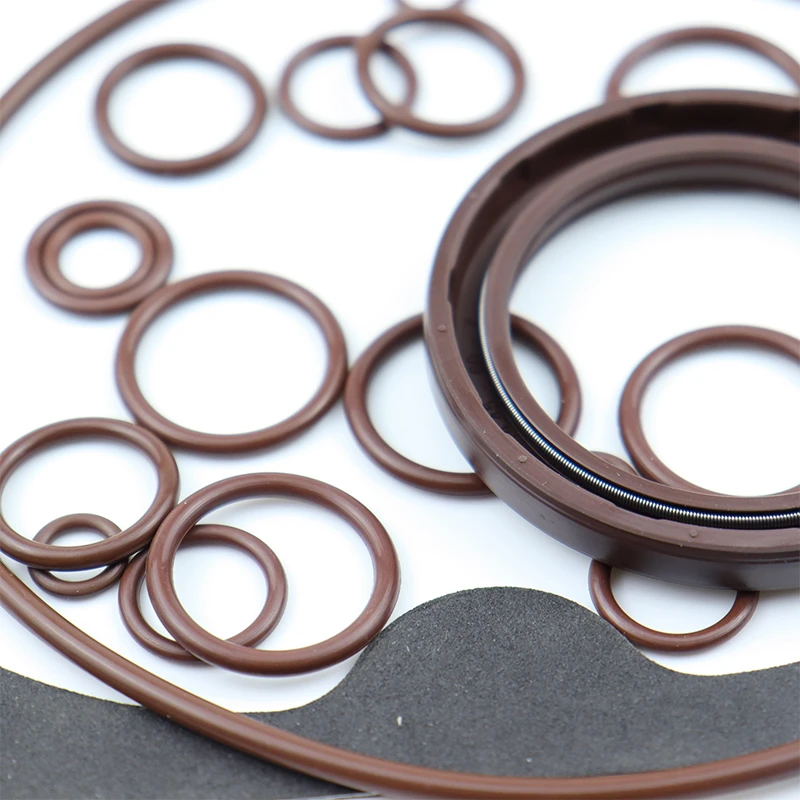نويابىر . 12, 2024 19:46 Back to list
custom made oil seals
Custom Made Oil Seals Enhancing Performance and Longevity in Mechanical Applications
Oil seals, also known as radial shaft seals, play a critical role in numerous mechanical applications by preventing lubricant leaks and keeping contaminants out. The demand for custom-made oil seals is on the rise, as industries increasingly require specific dimensions and materials tailored to their unique operational conditions. This article explores the significance of custom-made oil seals, their manufacturing process, benefits, and applications.
Understanding Oil Seals
Oil seals are used in various machinery, including engines, transmission systems, pumps, and heavy equipment. Their primary function is to seal the gap between the rotating shaft and stationary housing, thus maintaining the integrity of the lubrication system. By preventing oil leakage and minimizing contamination from external elements like dust and moisture, oil seals contribute significantly to the reliability and efficiency of equipment.
The Need for Custom Solutions
While standard oil seals serve various applications, many businesses encounter limitations with off-the-shelf products. Standard dimensions and materials may not meet the specific needs of certain machinery, leading to premature wear, frequent maintenance, and potential equipment failure. Custom-made oil seals address these challenges by providing tailored solutions that enhance the performance and longevity of mechanical systems.
Manufacturing Process of Custom Oil Seals
The process of creating custom-made oil seals involves several key steps
1. Consultation Manufacturers typically begin with consultations to understand the specific requirements of the client. This includes the operating conditions, temperature ranges, pressure levels, and environment in which the seal will operate.
2. Design Using CAD (Computer-Aided Design) software, engineers design the seal to precise dimensions. Factors such as material selection, thickness, and cross-sectional shape are meticulously considered to match the application's needs.
3. Material Selection The choice of material is crucial, as it directly affects the seal's performance. Common materials for oil seals include rubber, silicone, polyurethane, and various polymer blends. The selection depends on factors like temperature tolerance, resistance to chemicals, and compatibility with lubricants.
4. Manufacturing Once the design and materials are finalized, the manufacturing process begins. Techniques such as molding, extrusion, or machining may be employed depending on the complexity and requirements of the seal.
custom made oil seals

5. Quality Control Rigorous testing is conducted to ensure that the custom seals meet industry standards and specifications. This includes testing for durability, elasticity, and resistance to environment and chemicals.
6. Delivery and Support After passing quality checks, the seals are manufactured in the required quantities and delivered to clients. Continuous support and advice are often provided to ensure that the seals perform optimally in their intended applications.
Benefits of Custom Made Oil Seals
1. Improved Performance Custom-made seals are designed to operate efficiently under specific conditions, resulting in better sealing performance compared to standard seals.
2. Extended Equipment Life By preventing leaks and reducing contamination, custom oil seals minimize wear and tear on machinery, leading to longer operational life and reduced maintenance costs.
3. Tailored Solutions Each industry has its unique challenges; custom oil seals can address specific problems, such as high temperatures or exposure to aggressive chemicals, thus ensuring optimal performance.
4. Cost-Efficiency While the initial investment in custom seals may be higher than off-the-shelf options, the long-term savings achieved through decreased downtime and repair costs make them a cost-effective solution.
Applications Across Industries
Custom-made oil seals find applications in a wide range of industries, including automotive, aerospace, industrial machinery, marine, and agriculture. They are crucial in applications that demand high reliability and performance, such as in hydraulic systems, gearboxes, and rotating equipment.
Conclusion
In conclusion, custom-made oil seals are indispensable in ensuring the efficiency and reliability of mechanical systems. By offering tailored solutions that address specific operational challenges, they contribute to improved performance and an extended service life of equipment. As industries continue to evolve and demand higher precision, the role of custom oil seals will undoubtedly become more significant, emphasizing the importance of investing in quality sealing solutions.
-
TCN Oil Seal Metal Ring Reinforcement for Heavy Machinery
NewsJul.25,2025
-
Rotary Lip Seal Spring-Loaded Design for High-Speed Applications
NewsJul.25,2025
-
Hydraulic Cylinder Seals Polyurethane Material for High-Impact Jobs
NewsJul.25,2025
-
High Pressure Oil Seal Polyurethane Coating Wear Resistance
NewsJul.25,2025
-
Dust Proof Seal Double Lip Design for Construction Equipment
NewsJul.25,2025
-
Hub Seal Polyurethane Wear Resistance in Agricultural Vehicles
NewsJul.25,2025
-
The Trans-formative Journey of Wheel Hub Oil Seals
NewsJun.06,2025
Products categories
















